Hi Guys & Gal(s),
Well I’m still refining the performance of my big boy V5.0 build. It’s been performing great apart from one issue.
The V5.0 suffers from a common issue called a ground loop that causes an annoying buzzing/popping noise that’s most noticible during quiet passages during music and movies (I ocassionally use the V5.0 as my home theatre centre speaker).
This issue is caused by the amplifier and BT receiver sharing a common power source.
Enter my latest EBay purchase: a 12 volt DC-DC Converter Isolated power module.
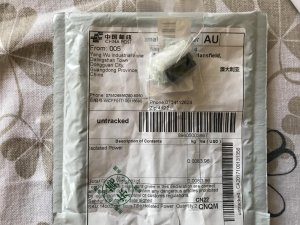
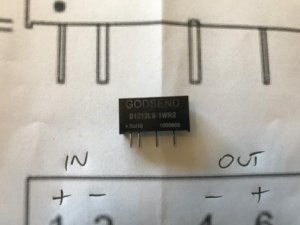
Simple really - According to the schematic, power in (from the 12v SLA battery) - pins 1 (+) & 2 (-), power out via pins 4 (-) & 6 (+).
BTW, the seller doesn’t supply the schematic with the unit - it took a couple of messages to the seller for them to email me the info above.
I installed the module in the power supply wiring for the BT receiver:
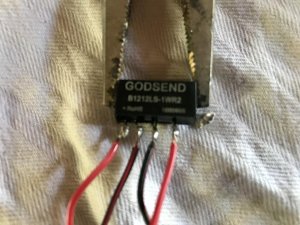
A little heat strink tubing later:
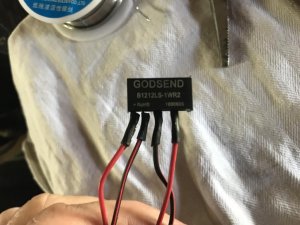
In place and ready to go:
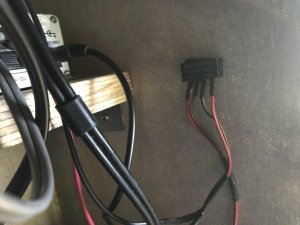
Success!! - no more hiss, popping, clicking or buzzing noises. Sounds like a modern BT pro box now! It’ll add $5 to your build cost but trust me, it’s worth it!
It’ll add $5 to your build cost but trust me, it’s worth it!
eBay link: https://www.ebay.com.au/i/401394723485
Have a great weekend guys,
James.....
Well I’m still refining the performance of my big boy V5.0 build. It’s been performing great apart from one issue.
The V5.0 suffers from a common issue called a ground loop that causes an annoying buzzing/popping noise that’s most noticible during quiet passages during music and movies (I ocassionally use the V5.0 as my home theatre centre speaker).
This issue is caused by the amplifier and BT receiver sharing a common power source.
Enter my latest EBay purchase: a 12 volt DC-DC Converter Isolated power module.


Simple really - According to the schematic, power in (from the 12v SLA battery) - pins 1 (+) & 2 (-), power out via pins 4 (-) & 6 (+).
BTW, the seller doesn’t supply the schematic with the unit - it took a couple of messages to the seller for them to email me the info above.
I installed the module in the power supply wiring for the BT receiver:

A little heat strink tubing later:


In place and ready to go:

Success!! - no more hiss, popping, clicking or buzzing noises. Sounds like a modern BT pro box now!
 It’ll add $5 to your build cost but trust me, it’s worth it!
It’ll add $5 to your build cost but trust me, it’s worth it!eBay link: https://www.ebay.com.au/i/401394723485
Have a great weekend guys,
James.....



